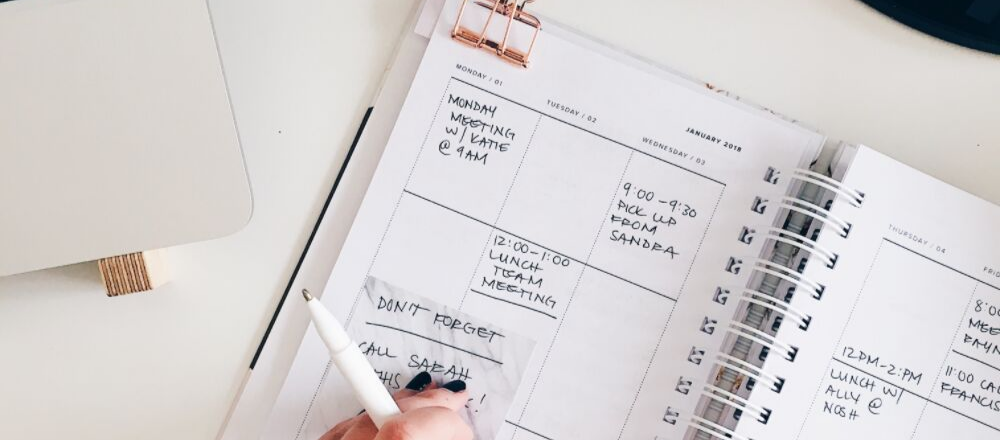People always take the word ‘stress’ in a negative sense. We usually forget that stress can be both good and bad for us. You will not be able to get away with most of your work if you do not have any stress at all. Stress is important to motivate you and accomplish your tasks effectively.
Usually, bad stress is a result of when you are working through the day to make a living and trying to manage your personal issues at the same time. No one’s life is perfect. We all face crisis and stressful situations. Bad stress can negatively affect your work performance and can cause health issues too. So, where does the good stress go? To convert most of your bad stress into beneficial and motivating one, you need to understand the impacts of stress on your performance. We will also tell you the ways to counter the negative effects of stress in the workplace.

Stress and Its Impact on Work Performance
- Decreased Productivity
Job stress plays a very important role in the performance of the employee. Every person has a different reaction and tolerance to stress. Sure, you need employees who are capable of handling stress in all situations and working under pressure. However, workplaces should have an optimum-stress level for their employees.
Putting too much workload on employees may not always be profitable. Instead, it can result in the opposite by decreasing their productivity. Analyze the strengths and weaknesses of your employees. Increase their workload gradually while offering them help and support.
How to Keep up with Good Work without Stressing Out
- Don’t Overcomplicate Tasks: Employers love it when the employees make an effort to go an extra mile. However, the same spirit can be overwhelming and takes most of your brainpower sometimes. Keep your tasks simple and focus on what you are instructed to do.
- Organize and Plan: When you have too much on your plate, you might want to start right ahead and finish off as quickly as you can. It is important to organize and plan your tasks before attempting them. Spending a few minutes on planning will save your time and your mind from the stress of feeling overloaded.
- Reach Out: If you think the workload is too high or you are unable to tackle some difficult task, then do not shy away from asking for help. It is better to be honest to your employer if you are unable to complete a certain task by yourself than to leave it unfinished.
- Increased Procrastination
While some people procrastinate more than others, procrastination is natural. It is the way your brain protects itself from mental burnout and escapes through stress. Some amount of procrastination is allowed for everyone and is important, but if you are procrastinating too much during work, things aren’t good for you. You have most probably gone into a vicious cycle of stress-procrastination-guilt-stress.
How to Control Your Procrastination
When you are under stress, your brain automatically finds a way to avoid and relieve from stress by procrastinating. The problem arises when it becomes a habit. To overcome this habit, you need to do the following things:
- Meditate: Regular meditation will help your mind achieve better focus and calmness. This way, your mind is less likely to jump to procrastination under stress.
- Get Over the Guilt: This is the best way to break the cycle of procrastination as more guilty you feel, you get more stress and procrastination allover. Learn to forgive yourself and get back to your work where you left from with the same groove you started as if nothing has happened.
- Analyze Your Procrastination Pattern: Your brain is well calculated in everything it does. While procrastination wastes your time, the procrastination is calculated too. All you need to do is find at what time and for how long you tend to procrastinate. You must realize which tasks make you procrastinate more.
- Create Process Goal: Process goals are short term accessible and achievable goals that are most likely to lessen your procrastination. Distribute your tasks into short process goals, especially those tasks where you are most likely to put on pending by procrastinating.
- Poor Physical Health
If you think stress affecting your work and health are two different things, then here’s what you must know. When you find it hard to work in stressful conditions, it’s a clear sign of stress affecting your mind and possibly your health. Constantly preoccupying oneself in job responsibilities produces stress that often leads to irregular and unhealthy eating habits. Plus, a lack of exercising can further contribute to increased chances of weight problems, high blood pressure, and blood cholesterol.
When you are constantly dealing with stressful situations at work, you need to make physical, mental, and emotional adjustments to get along and stay healthy. The more your health deteriorates with work stress, your productivity, and tolerance in the workplace decreases too.
How to Manage Stressful Work and a Healthy Lifestyle Together
You need to take care of following things to keep up with your health when the workload and environment are stressful.

- Take a Walk: Do not sit or stand for long. If your work involves sitting for a long time, take a short walk at every hour or two. It is better to take out some time after work and go for a walk. Daily walk do wonders for a stressful body.
- Eat Healthily: You must have heard this advice several times, yet you might not follow it. You tend to eat guilty pleasure foods when stressed out. You have to know that eating unhealthy and junk food will satisfy you momentarily, but your cravings will worsen with time.
- Do Not Skip Breakfast/Lunch/Dinner: How many times you haven’t had breakfast because of running late? Or skipped on a lunchtime to avoid doing overtime? Do not skip the important meals even when you have lots of work to do. You need enough food to fuel up for finishing all the work on time.
- Sleep Well: Getting a good night sleep is important to get you through the day. Stressing yourself out and not getting enough sleep is like slow poisoning yourself.
- Use an Active Sitting Office Chair: How long do you sit? How long do you sit still? If you are like most people the answer is more than 8 hours a day. Sedentary lifestyles have been linked to health concerns including obesity, heart disease, and other long term health complications. Change the way you sit with an active sitting chair that allows you to move while you sit, increase your caloric burn, improves blood flow, and mobilizes your muscles and joints.
Conclusion
Stress can negatively impact your work performance by affecting your creativity, productivity, and physical, emotional, and mental health. However, with a positive attitude, proper planning, stress managing tips, and healthy habits, you can turn bad stress into good stress to keep yourself motivated.


